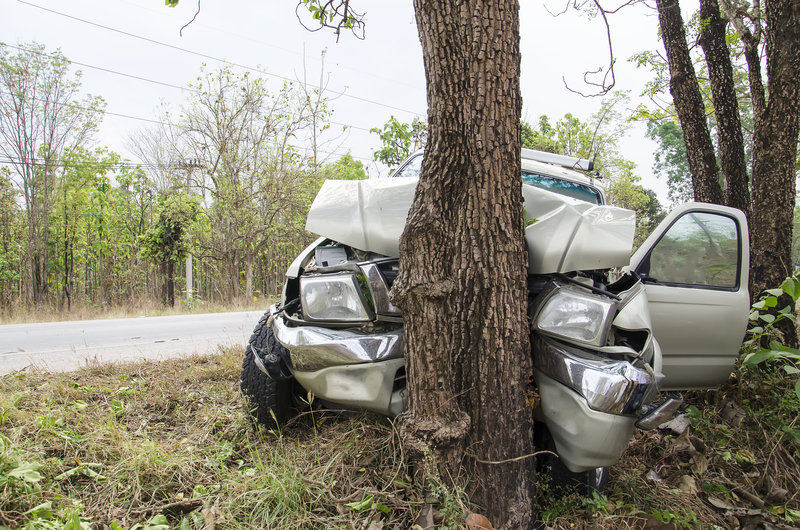A single vehicle accident – also known as a single car accident – is a car accident that only involves one vehicle.
The steps you take following a single vehicle accident are slightly different from the steps you’d take following a collision between two or more vehicles. In this post, we’ll take a closer look at what a single vehicle accident is, with some examples. We’ll then explore the legal and insurance implications of single vehicle accidents.
If you have any questions about your insurance needs, get in touch with our personal insurance specialists on 0208 290 9086, or email personal@anthonyjones.com.
Examples of Single Vehicle Accidents
- A collision involving a pedestrian, a cyclist, or a wild animal.
- Collisions with private property including lampposts, fences, walls, road signs, trees, and so on.
- A driver loses control of their car, flipping it over or ending up on a verge or in a ditch.
Who is Liable in a Single Vehicle Accident?
In many cases, the person driving the sole vehicle involved in a single vehicle accident will be liable for any injuries and damages. Indeed, a lot of single vehicle accidents are the result of a driver’s negligence or recklessness, or of blatant disregard of the Highway Code.
Single vehicle accidents aren’t always straightforward for police and insurers to investigate, though. Often, the driver involved is the sole witness, and not all drivers are willing to admit fault.
Can the Driver Not be Liable for a Single Vehicle Accident?
Yes, there are some situations where the driver of the vehicle involved in a single vehicle accident isn’t the liable party.
When is a Driver Not Liable for a Single Vehicle Accident?
There are some situations where other road users might be held liable for single vehicle accidents:
- Another vehicle may be driving dangerously, forcing another vehicle to swerve to avoid them. The person driving this other vehicle could lose control, causing them to hit an object on the roadside. In this instance, the driver who was driving dangerously may be held liable for all damages caused by the other car.
- Unsecured cargo may fall from a vehicle. This cargo may hit another vehicle, or it may force other road users to swerve or perform an emergency stop, which could lead to a collision. In this case, the driver who failed to secure their cargo may be held liable for all damages.
- In a collision involving a pedestrian or a cyclist, the pedestrian or cyclist may be held liable if it can be proved that they were acting in a negligent or reckless manner. For example, a pedestrian may suddenly stumble into the road while under the effects of drugs or alcohol.
- If a driver loses control of a vehicle due to a technical or mechanical fault, the vehicle manufacturer may be held liable if it can be demonstrated that the accident was the result of an innate design or manufacturing flaw.
No Fault Single Vehicle Accidents
There are some single vehicle accidents that might be considered unavoidable, in which case nobody will be held liable for any injuries and damages. For example, collisions with deer, cows, or other animals might be considered to be beyond anyone’s control.
Also, accidents that result from harsh weather or road conditions might be viewed as unavoidable. Though in some cases, the police and insurers may hold the drivers responsible if, for example, they did not take sufficient measures to deal with the harsh conditions – such as through turning on fog lights during a period of low visibility.
Will My Car Insurance Cover Me For Single Vehicle Accidents?
Your car insurance may cover you for a single vehicle accident. It depends on the type of accident, and on the type of car insurance cover you have.
For example, if you have a comprehensive policy, then you may be covered for all property damages, and for any injuries to pedestrians or cyclists, that may result from a single vehicle accident. A comprehensive policy should cover you for any damages to your car too. However, given that most single vehicle accidents are viewed as being the driver’s fault, your premiums may increase.
In most cases, your car insurance policy won’t cover you for any injuries you sustain during a single vehicle accident. For that, you’d need to make a claim on a dedicated personal accident or insurance claim.
For more information about whether your insurance will cover you for single vehicle accidents, read your policy wording, or talk to your insurer.
And if you have any questions about your cover, or if you’d like some support in finding a policy that works for you, get in touch with our personal insurance specialists on 0208 290 9086, or email personal@anthonyjones.com.


